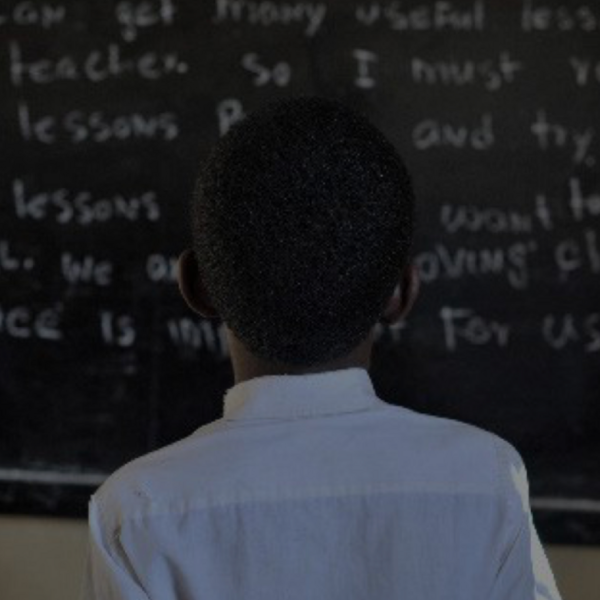

Author: Aïcha Awa Ba
Site of the publication: GNB
Type of the publication: Report
Date of the publication: July 2024
Context
In West and Central Africa, 39% of girls are married or in a union before age 18. The region is home to seven of the 10 countries with the highest child marriagea prevalence in the world. Niger has the highest child marriage prevalence in the world, at 76%, closely followed by Central African Republic (68%), Chad (67%), Mali (54%), and Burkina Faso (52%).1 At the current rate of progress, it will take another 200 years to end child marriage in West and Central Africa.2 Girls Not Brides is implementing a project funded by Education Out Loud (EOL), which seeks to address the linked issues of child marriage and girls’ lack of access to quality education. It focuses on countries in French-speaking West Africa – especially Burkina Faso and Niger – which have some of the highest prevalence of child marriage and out-of-school girls in the world.
Conceptual framework of youth-led research
Knowledge is power: Youth-led research to revisit power dynamics in knowledge and advocacy processes There is growing concern in the child marriage and education sectors – and beyond – with the unequal power dynamics and Eurocentrism in research, knowledge production and advocacy practices around these issues. Girls Not Brides recognise the importance of fostering high-level youth participation, supporting local ownership of solutions, leveraging innovative approaches and bridging evidence gaps as ways to address power imbalances and contribute to a stronger, diversified knowledge base.
Through this youth-led research project, Girls Not Brides aims to strengthen systems to resist the marginalisation of young West Africans – and particularly young women, in all their diversity – from public spheres at the local, national and international levels. In this, they aim to enhance the capacities of under-represented groups, and contribute to an environment in which they can voice their concerns and be seen and heard in decision-making processes, so consolidating their position as change agents in the region. The project also addresses the lack of recognition and circulation of knowledge coming from the Global South, promoting South-South links and intergenerational knowledge sharing.
The impact of social norms on girl’s education and child marriage
A rich variety of cultures and traditions are prevalent across West Africa, but there is a common cultural basis, which is marked by patriarchal values, respect for seniority, and the importance of marriage and fertility. Marriage is seen as an essential step in the passage from childhood to adulthood, and an important tool for confirming social relationships and support within the community. A central concept that drives decisions around child marriage in West Africa is the perceived relationship between a girl’s virginity and family honour.
In Niger, marriage is seen as an inevitable event in life. This is accelerated by factors like the lack of economic opportunities, social pressure within the community, and gendered socialisation of girls from an early age.
In both Burkina Faso and Niger, gender norms around the reproductive role of women significantly influence girls’ decision to marry early. Peer pressure and stereotypical gender roles reinforce the idea that girls can only project themselves as future wives and mothers and not as economic providers or key actors in their communities. This impacts girls’ ambition to perform and succeed at school; resulting in weak enrolment and high rates of early school leaving. Poor quality and access to education increase a general resistance to girls’ education, leaving many girls with limited to no viable alternative to early marriage.
Correlation between child marriage and girls dropping out of school
There is a strong correlation between child marriage and girls’ education. Across West, Central East and Southern Africa, child marriage is a clear determinant of girls’ low educational attainment. The literacy rate among women who married before age 18 is 29%, compared with 54% among women who married later. In Niger, 81% of women with no education and 63% with only primary education were married or in union by age 18, compared with only 17% of women who completed secondary education or higher.
Most young researchers demonstrated that the majority of girls who marry do not return to school. In Dan Issa, during the 2021-2022 academic year, 43 schoolgirls got married, and 30 of them have not returned to school. Of the 13 who did continue to attend school, most were in their final year.
Recommendations 1
- Economic factors driving child marriage and girls’ lack of education
- Promote comprehensive coverage of education-related expenses for girls who are the most at risk of leaving school early, including school fees, learning materials, the school canteen, hygiene kits, transportation, uniforms, tutoring and other relevant needs;
- Facilitate access to education for married girls, girls who have children, and out-of-school girls;
- Promote vocational training for girls.
Recommendations 2
Shift advocacy from focusing on access to education to focusing on quality of education and inclusion.
Advocate for systemic change in the education system and promote gender transformative education by:
- Ending all forms of school violence, including gender-based school violence.
- Intensifying the recruitment of female teachers.
- Revisiting school curricula that disseminate harmful gender norms.
- Build school facilities to prevent menstruation-related absenteeism and integrate spaces within schools to provide menstruation education;
- Promote culturally relevant education
